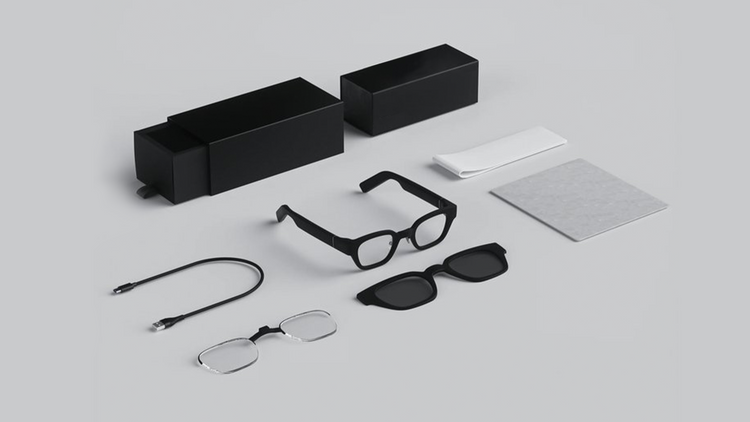The Best Alarm Clock Solutions for Deaf and Hard-of-Hearing People in 2025
Waking up on time is something many people take for granted. But for millions of Deaf and Hard-of-Hearing individuals, traditional alarm clocks simply don’t work. Relying solely on sound makes conventional alarms ineffective, unreliable, and even stressful. This is why specialized alarm clocks for deaf people have become essential tools—offering vibration, flashing lights, and other sensory alerts that guarantee a smooth and dependable wake-up experience.
Whether you're deaf, hard of hearing, or simply a very deep sleeper, choosing the right alarm clock can make a dramatic difference in your daily routine. Below, we break down how these devices work, what features to look for, and why modern vibrating alarm clocks have become the gold standard in accessibility technology.
Why Traditional Alarms Don’t Work for Deaf or Hard-of-Hearing Individuals
Most alarm clocks rely on volume alone—but hearing loss varies widely, and even the loudest tones may not be enough for people with severe or profound hearing loss. Some individuals may also remove hearing aids at night, which makes sound-based alerts completely ineffective.
This leads to common problems:
-
Missing important appointments
-
Oversleeping and feeling stressed in the morning
-
Relying on others to wake them up
-
Reduced independence and privacy
This is why vibration-based and light-based alarm clocks were created—to offer a guaranteed wake-up experience that works regardless of hearing ability.
How Alarm Clocks for Deaf People Work
Specialized accessible alarm clocks use multiple sensory channels to ensure you never miss your wake-up time. The three most common alert systems include:
1. Bed-Shaking Vibrations
A small round “bed shaker” is placed under the pillow or mattress. When the alarm activates, it produces strong vibrations—often impossible to ignore even for the deepest sleepers.
2. Flashing LED Lights
Bright, intense flashing lights provide a visual wake-up signal. This works especially well for individuals who sleep on their back or wake easily from light changes.
3. Extra-Loud Audible Alarms (Optional)
Some models still include a 90–110 dB buzzer for households with mixed hearing levels or people who prefer multi-mode alerts.
By combining these features, modern accessibility alarm clocks offer independence, reliability, and peace of mind.
⭐ Recommended: Hearview Loud Vibrating Alarm Clock (Best Overall in 2025)
For anyone seeking a reliable, modern, and highly effective alarm clock, the Hearview Loud Vibrating Alarm Clock with Bed Shaker & Flashing Light is one of the best options available today.
👉 Product Link:
https://www.hearview.ai/products/loud-vibrating-alarm-clock-with-bed-shaker-flashing-light-for-deaf-hard-of-hearing
Why This Model Stands Out
This powerful 3-in-1 system is designed specifically for the Deaf and Hard-of-Hearing community, combining strong bed vibrations, bright red flashing lights, and an optional extra-loud buzzer.
Key advantages include:
-
2-level powerful bed shaker (Normal / Strong)
-
100% silent wake-up mode (Vibration + Flash only)
-
Bright dual flashing alert lights
-
Large 6.5" dimmable LED display
-
Dual alarms for flexible schedules
-
5-level brightness ranging from full to completely dark
It is ideal not only for deaf individuals but also for heavy sleepers, students, seniors, and anyone who wants guaranteed wake-ups without relying on sound.
With a very affordable price and excellent build quality, this Hearview model has become one of the most trusted wake-up devices in the accessibility community.
Features to Consider When Choosing an Alarm Clock for Deaf People
If you're comparing different models, keep these essential features in mind:
1. Vibration Strength
Look for adjustable vibration levels, especially if you're a deep sleeper.
2. Alert Combination Options
The best clocks let you choose vibration, flashing light, sound, or any combination.
3. Display Size and Brightness
A large, dimmable screen is important for night-time comfort.
4. Multiple Alarms
Ideal for people with varied schedules, medical routines, or school/work cycles.
5. Power Source Stability
USB power with battery backup ensures reliability during outages.
6. Simplicity and Accessibility
Large buttons, intuitive menus, and tactile controls are essential for a smooth experience.
Who Should Use a Vibrating Alarm Clock?
Although designed for individuals with hearing loss, these devices benefit a wide range of people:
-
Deaf and Hard-of-Hearing individuals
-
People who remove hearing aids or cochlear implants at night
-
Heavy sleepers who sleep through phone alarms
-
Students with irregular schedules
-
Seniors who prefer visual/tactile alerts
-
Couples who want a silent alarm without disturbing a partner
The combination of vibration and flashing lights makes these alarm clocks extremely dependable across all age groups.
Final Thoughts
An alarm clock for deaf people is more than just a wake-up tool—it represents independence, confidence, and equal access to daily routines. With modern innovations like strong bed shakers and customizable alert systems, waking up on time has never been easier.
If you want a device that truly guarantees you’ll wake up—silently or loudly—then the
Hearview Loud Vibrating Alarm Clock with Bed Shaker & Flashing Light is one of the best choices available today.
👉 Check the product here:
https://www.hearview.ai/products/loud-vibrating-alarm-clock-with-bed-shaker-flashing-light-for-deaf-hard-of-hearing
Let this be the last alarm you’ll ever sleep through.

